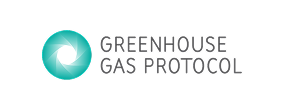Energy Attribute Certificates (EACs)
Compare, Purchase, and Manage Renewable Energy Certificates Across Global Markets
Buy EACsWhat Are EACs
Energy Attribute Certificates (EACs) are tracking instruments that represent 1 MWh of electricity generated from a renewable source. When a generator produces renewable power, an EAC is issued to document its origin. Each certificate includes details such as the generation date, location, and technology type.
Why Companies Buy EACs
EACs are used to demonstrate the use of renewable electricity and support environmental reporting. They allow companies to reduce Scope 2 emissions and make credible environmental claims.
EACs Generation Sources
EACs can be issued for electricity generated from various renewable technologies and are available on our Marketplace:

Solar

Wind

Hydropower (including small hydro)

Biomass

Geothermal
Market Coverage
EACs are used globally, but their systems are country-specific. Each certificate must be issued and purchased in the same country or market where the electricity is consumed. While EACs support international reporting, their use is tied to local rules and geographic boundaries. We provide access to all types of EACs or you can request specific certificates not currently listed.
Types of EACs by Region
Global
I-REC: used in 68+ countries TIGR: used in emerging Asian markets
North America
REC (US RECs): used in the U.S. and Canada
Europe
GO (Guarantee of Origin): EU-wide REGO: UK-specific
Asia-Pacific
K-REC: national system in South Korea T-REC: national system in Taiwan GECs: national system in China LGC: national system in Australia NFC: national system in Japan
EAC Pricing
EAC prices vary by certificate type, region, and supply-demand conditions. As renewable markets develop and sustainability commitments accelerate, pricing increasingly reflects technology, geography, and buyer preferences. See current trends and historical data on our Price Index.
How to Get Started
You can source EACs directly through our Marketplace. Choose your country, volume, technology, vintage, labels or tell us your goals, and we’ll help you find the best options.
Talk to the teamRetirement & Claiming Process
To make a renewable energy claim, an EAC must be retired. Retirement means the certificate is taken out of circulation and cannot be resold or reused. EACs are typically retired by the buyer or an authorized representative. This step ensures that the environmental benefit is counted only once and is linked to a specific reporting period or purpose. When purchasing through our Marketplace, redemption certificates can be downloaded directly from the platform.
Voluntary Schemes
EACs we provide are aligned with the requirements of all major voluntary schemes.





Ecolabels
EACs can carry ecolabels that reflect additional environmental or quality standards beyond basic renewable generation. These labels help buyers demonstrate a stronger commitment to sustainability and responsible sourcing.


Need Pricing or Guidance?
Global & regional EAC systems
RE100 & other frameworks
Ecolabels available
Flexible sourcing
Simple retirement & documentation
Get Started
Choose country, volume, technology, and vintage, or just tell us your goals. We’ll help you get the best match.
Talk to the Team